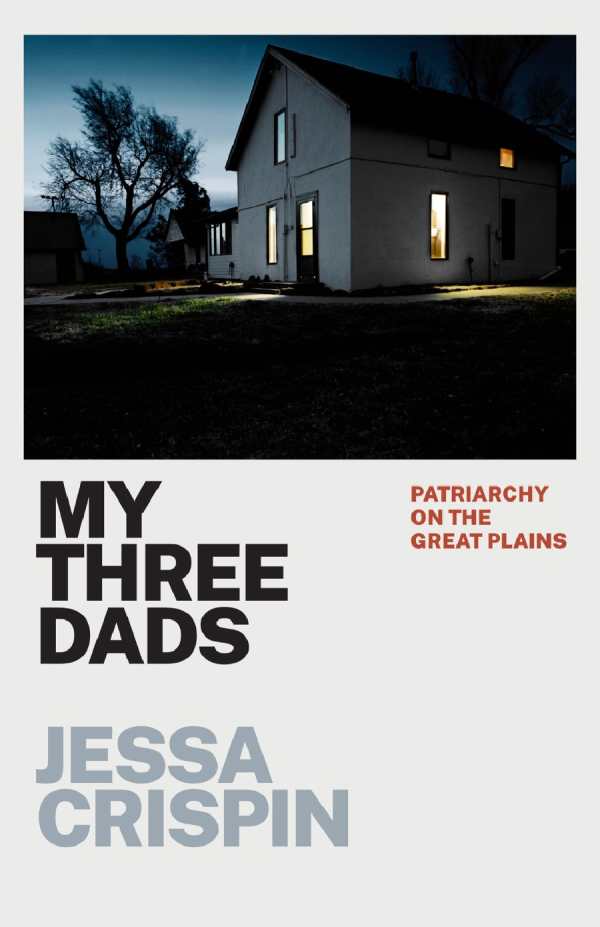My Three Dads
Patriarchy on the Great Plains
Jessa Crispin’s voluble memoir My Three Dads entwines intense personal experiences with compelling social observations.
Crispin, after renting a house in a blighted neighborhood of Kansas City, began to feel haunted. After meeting with local paranormal consultants, the supernatural presence of Charlie, the home’s former owner, was confirmed to her. Charlie wasn’t malicious, but he did disapprove of Crispin’s non-traditional behavior and her Tinder dates. And as a native of rural Kansas, Crispin was familiar with Charlie’s distinct energy. He was the spectral version of Midwestern men whom she had known all her life: taciturn, moralizing beings suffering from “emotional constipation,” yet “still strangely captivating” in their stoic detachment.
Following this beginning, the book recalls Crispin’s childhood and adolescence, spent within the confines of “Midwestern monoculture.” It also delves into the zealotry of Kansas in general, including the rampages of abolitionist John Brown, Ku Klux Klan raids, and anti-abortion violence and murder.
Throughout, Crispin explores diverse topics with varied brilliance. Bland Methodist church services alternate with frenzied evangelical gatherings, and moments of revelation are found in Chicago bars and medieval Romanian churches. Martin Luther’s Reformation is contemplated, as is the life of fellow Midwesterner Axl Rose, whose music evokes the region’s “dark wheat fields” and “endless display of stars.”
Beyond her own experiences, Crispin surveys America’s increasing polarization. She notes extremes of academic and cultural elitism, contrasted with homophobia, xenophobia, and inherited ignorance. And social media creates connections that fuel further division, she says, all while promoting trivial obsessions over “the latest Baby Yoda product,” craft beers, and Twitter feuds, along with the relentless monitoring of individual data.
My Three Dads is challenging in its assessment of American life—a personal story that’s conveyed with piercing humor, sharp details, and whirlwinds of intelligent, expansive prose.
Reviewed by
Meg Nola
Disclosure: This article is not an endorsement, but a review. The publisher of this book provided free copies of the book to have their book reviewed by a professional reviewer. No fee was paid by the publisher for this review. Foreword Reviews only recommends books that we love. Foreword Magazine, Inc. is disclosing this in accordance with the Federal Trade Commission’s 16 CFR, Part 255.

